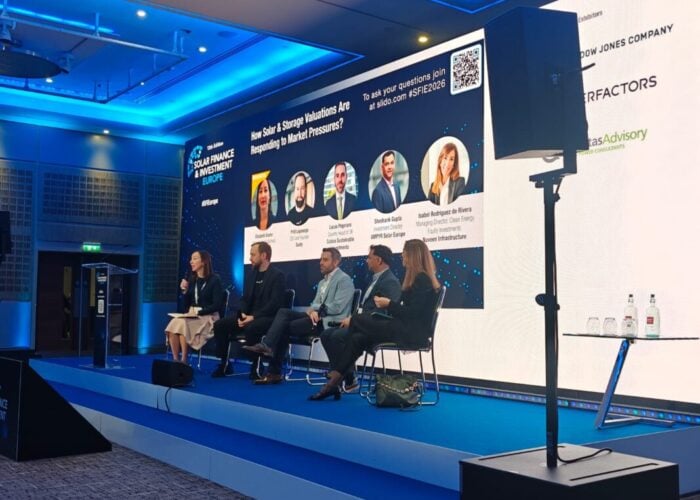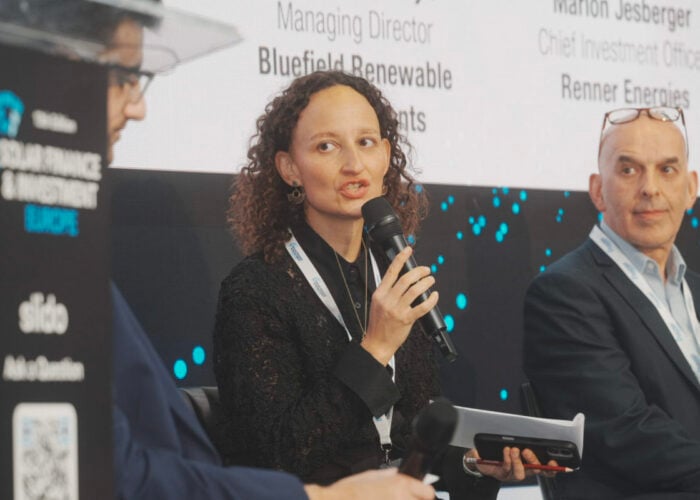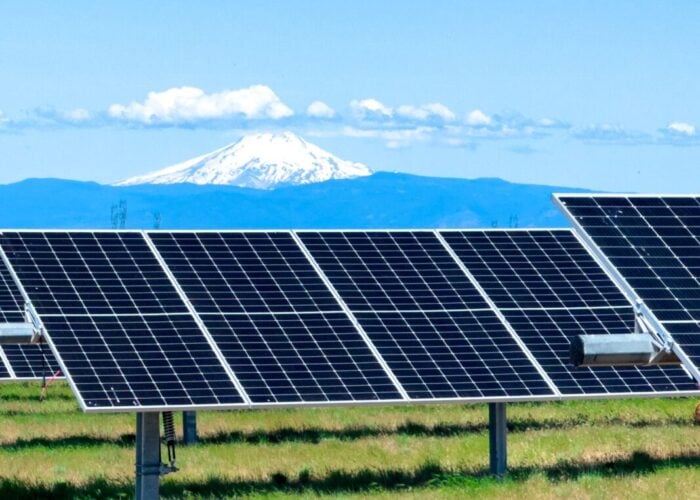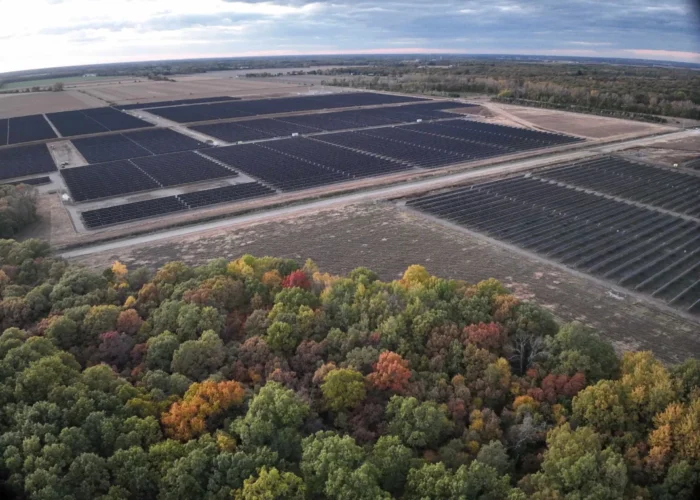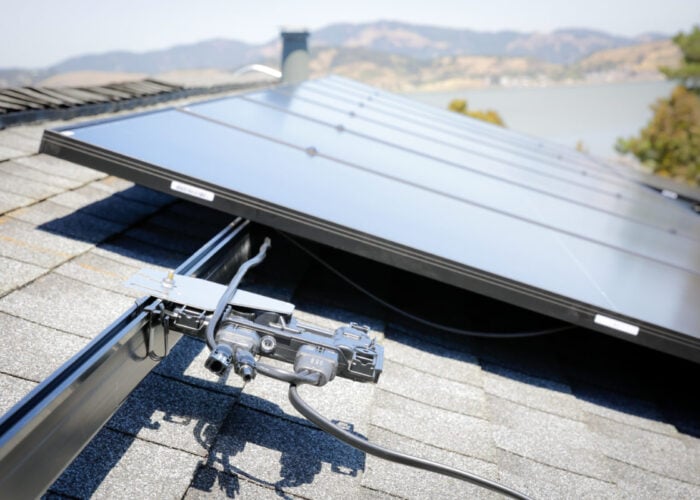Gujarat, India’s leading solar state, is to introduce a net metering policy in the coming weeks, according to local press reports.
Shri Pandian, principal secretary of Gujarat’s Ministry of Energy and Petrochemicals, said a net metering policy would be implemented in a few weeks, according to a report in India’s Financial Express.
Try Premium for just $1
- Full premium access for the first month at only $1
- Converts to an annual rate after 30 days unless cancelled
- Cancel anytime during the trial period
Premium Benefits
- Expert industry analysis and interviews
- Digital access to PV Tech Power journal
- Exclusive event discounts
Or get the full Premium subscription right away
Or continue reading this article for free
Gujarat has the highest installed solar capacity in India and is considered a national leader in solar policy.
Solar consultancy, Bridge to India’s head of market intelligence, Jasmeet Khurana said: “The anticipation from Gujarat is usually the highest given its policy implementation track.”
Benefits
Pradeep Palelli, managing partner of Efficient Carbon, a solar consulting company based in Hyderabad, told PV Tech the main benefits for encouraging on grid solar rather than independent systems and storage through net metering in India, is to “ease peak power deficits”. In 2012 India suffered the largest black out in history. Connecting residential solar systems could help reduce widespread power cuts.
Khurana said introducing net metering would also increase the average size of systems installed and improve deployment rates by up to 50%. Elaborating further that current subsidies warrant the preconception solar is too expensive for many, Khurana said the introduction of net metering could help temper myths of exaggerated costs, with banks and financing companies beginning to view residential solar as “similar to vehicle loans or house loans”.
“Once this picks up, the Subsidy problem or initial high cost perception of domestic solar will be solved as down payments will be small, with loans spreading across a few years. This will increase adoption in a big way across India,” he said.
Palelli said net metering was something many states would “look forward to”, as charges for transporting electricity over transmission lines (wheeling charges) are – not in highly populated regions like Delhi or Mumbai – generally either non existent for domestic consumers, very small (Andhra Pradesh INR0.06), or levied on to solely commercial consumers. Many states are anticipating grid charges will be compensated by net metering consumers.
“It's a slow start but once the initial adopters prove the benefits of net metering accrued to the consumer and the grid in general, other states may follow,” predicts Palelli.
Challenges
Madhavan Nampoothiri, founder and director for RESolve Energy Consultants, said at Intersolar India 2013, the challenges facing net metering in India, and globally are: energy accounting and interconnection arrangements “including level of grid penetration and metering”.
Nampoothiri said commercial lending for residential solar is presently “almost non-existent” in India. “Even with the introduction of net metering, financing will continue to be a key challenge until the market has some volumes,” he said.
Also the “actual implementation of net metering will be a huge challenge in our view” added Khurana.
In relation to net metering disputes in the US being repeated in India, Nampoothiri said the scarcity of grid connected rooftops in India should not create any “problems from the utilities at this stage” and the state drafted restrictions on the amount of solar energy that can be exported will address “stability issues of the grid”.
Khurana said the “only motivation” for utilities to adopt net metering for solar was to meet renewable purchase obligations (RPO). Although Gujarat already has gross-metering – where all generated electricity is exported to the grid – which “the utilities have not resisted publicly”, Khrana said utilities are not “excited about the prospects and the government is currently exploring ways to ensure a fair deal to utilities”.
Moving forwards
Gujarat’s capital, Gandhinagar has already been running a pilot solar rooftop programme which is generating power and provides incentives to rooftop owners for installing rooftop PV. “The programme is the first of its kind in India in terms of its structure and it seems to be on track. Introduction of net metering will be a step forward,” Khurana said.
“If the electricity rates are attractive, the customers can either save money or even make money by exporting the electricity to the grid,” added Nampoothiri.
Eight states have already drafted net metering policies: Tamil Nadu, Andhra Pradesh, Uttarakhand, Gujarat, Kerala, Delhi, Karnataka and Punjab.
Palelli predicts the state of Andhra Pradesh could use the average pooled purchase cost (APPC) tariff already announced for 2013-2014, of INR3.28 per unit for excess power injected into the grid.
Nampoothiri wrote for Intersolar India 2013 that Tamil Nadu has drafted a cap on electricity rooftop owners, for how much energy they can feed back into the grid. The cap is 90% of the electricity consumed by rooftop owners. Delhi’s electric regulatory commission has released a net metering policy draft that is very similar.
Punjab has the same 90% cap in its August 2013 draft, and a cap of 80% on a predetermined ‘Sanctioned Connected Load’ on the maximum capacity of the rooftop system, and installation capacity ranges must be 1kW to 500kW.
Uttarakhand has a drafted capacity limit eligibility of 300W to 100 kW for projects with battery backup and up to 500 KW without battery backup. System owners can get INR9.20 per kWh for electricity exported to grid in the year 2013-14.
Maharashtra has a working committee drafting a net metering policy.
Elections
The government of Gujarat is expected to announce the trailblazing policy by March 2014, due to up coming elections. The Lok Sabha (lower house of parliament) elections are expected in April/May. Nampoothiri said the hurry was because “no new policy announcements can be made till the elections are over”.
“Gujarat intends to introduce the policy before the elections begin,” added Palelli. This would provide Gujarat more time to finalise the policy, as if the net metering policy is not passed by 15 March, it will have to wait until after the elections, 30 June. The details of the precedent-setting policy will be important Khurana said, as the “direction and soundness of policy and regulations for the rooftop market will be a key determinant about the future of solar in India for the coming years”.

